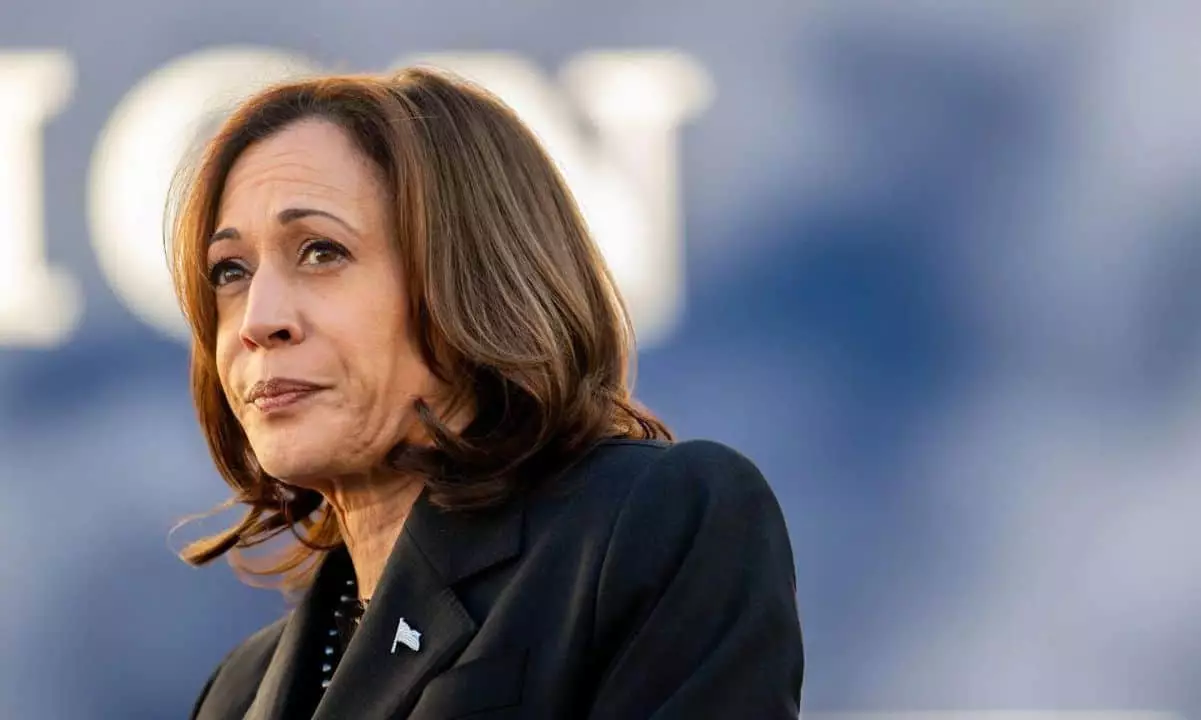The intersection of cryptocurrency and politics has become a focus as digital asset advocacy groups like Stand With Crypto attempt to gauge and influence political sentiment towards the burgeoning industry. Recently, the group found itself in hot water after changing its rating of Democratic presidential candidate Kamala Harris, illustrating the complexities and controversies that pervade this emerging political landscape.
Stand With Crypto, a digital asset lobby group supported by major players like Coinbase, initially categorized Kamala Harris as a “Supports Crypto” candidate, awarding her a “B” grade. This assessment came shortly after her comments at a fundraiser in New York, where Harris expressed her intentions to support innovative technologies, including digital assets. On the heels of her remarks, Stand With Crypto interpreted her statements as a significant endorsement of the crypto sector, elevating her standing in their rankings. However, this swift judgment encountered backlash from prominent members of the cryptocurrency community who believed her endorsement was far from robust.
The disparity in how different individuals perceive Harris’s commitment to cryptocurrency illuminates a key point of contention. Many members of the crypto community expected a stronger pro-crypto stance from political candidates, and Harris’s widely regarded lukewarm statements stirred frustration rather than support. Bitcoin advocate Wayne Vaughan pointed out that her single reference to crypto could be deemed “neutral,” while others sharply criticized her historical record on the matter as indicative of distrust toward digital assets.
Criticism and Reevaluation
This situation culminated in fierce criticism, with legal experts and venture capitalists alike denouncing Stand With Crypto for what they perceived as unwarranted optimism regarding Harris’s pro-crypto sentiments. Michael Cairo, a lawyer specializing in crypto law, emphasized that it was misleading to interpret her vague comments favorably. The lack of concrete support and the superficiality of the statements were painted as substantive gaps in Harris’s crypto advocacy, prompting calls to reassess her ranking comprehensively.
This tension escalated as observers alleged that their grading system could be an instance of pandering for political favor. Some speculated that by projecting bipartisan support, Stand With Crypto was primarily motivated by the potential future benefits of being associated with whichever candidate won. The ambiguity surrounding Harris’s stance—especially the generalization of “digital assets”—only fueled this skepticism, with critics questioning whether such statements could apply to anything from centralized government currencies to consumer loyalty programs.
In light of burgeoning criticism, Stand With Crypto issued a revised assessment of its grading system, acknowledging the significant feedback gathered from community members. They shifted to a more nuanced framework when evaluating political figures, introducing a category labeled “Needs More Information.” This change acknowledges the varying degrees of information available on candidate positions, from vague statements to substantiated commitments.
Logan Dobson, the executive director of Stand With Crypto, articulated the group’s intention to refine its scoring system beyond blanket ratings. Moving forward, candidates who lack sufficient detail in their support for cryptocurrencies will no longer receive overly positive ratings. Instead, while their statements will still be included on the site for transparency, they will be classified under a category indicating that their position warrants further clarification.
This incident encapsulates the broader challenges faced by advocacy groups in navigating the complex political landscape surrounding the crypto industry. As cryptocurrency continues to grow and gain traction, expectations from advocates and enthusiasts for robust political support also increase. However, the varied interpretations of political statements, coupled with an ever-evolving regulatory environment, complicate the potential for clear support.
Ultimately, the fallout from Harris’s revised ranking underscores a pressing need for transparency and genuine dialogue between political leaders and the digital asset sector. As the 2024 election approaches, the crypto community will be closely monitoring how candidates articulate their positions and how advocacy groups respond, ensuring that support for digital assets transcends vague proclamations and leads to actionable regulatory frameworks. The evolving dynamic delineates a significant chapter in the interconnections between technology, policy, and public perception—one that will likely continue to shape the future of cryptocurrency advocacy.

